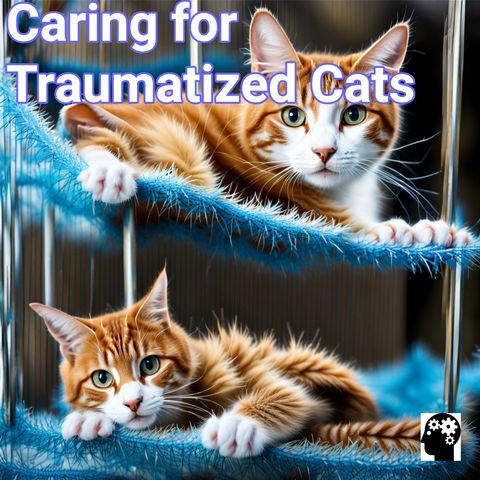
Contatti
Info
Helping Abused Cats Recover Abused cats require special care and attention to help them heal both physically and emotionally. These felines often come from traumatic backgrounds and need a nurturing...
mostra di piùAbused cats require special care and attention to help them heal both physically and emotionally. These felines often come from traumatic backgrounds and need a nurturing environment to regain their trust in humans. Here are some crucial steps to take when caring for an abused cat.
Create a Safe Space
The first step in helping an abused cat is to provide a safe and quiet space where they can feel secure. Set up a small room with all their essentials: food, water, a litter box, and a comfortable bed. This area should be free from loud noises and other pets to reduce stress and allow the cat to acclimate to their new environment.
Patience and Gentle Interaction
Earning the trust of an abused cat takes time. Be patient and allow them to approach you at their own pace. Spend time in their space without forcing interaction. Speak softly and offer treats to create positive associations. Gradually, the cat will begin to feel more comfortable and may start seeking your attention.
Professional Veterinary Care
Abused cats often have underlying health issues that need to be addressed. A thorough veterinary examination is essential to identify any physical injuries or illnesses. The vet can also provide guidance on addressing behavioral issues that may stem from the cat’s traumatic experiences. Regular check-ups and appropriate medical treatment are crucial for their recovery.
Behavioral Therapy
In some cases, abused cats may benefit from behavioral therapy. A professional animal behaviorist can help address severe anxiety or aggression. Techniques such as desensitization and counter-conditioning can be effective in helping the cat overcome fear and build trust.
Consistency and positive reinforcement are key elements in this process.
We hope this topic has been useful to you. Share it if you think it can help other people. Be happy.
If you found this topic insightful, feel free to share it with others. Wishing you happiness!We trust you found this information beneficial. Pass it along to help others.
Enjoy your day!Discover expert advice and heartwarming stories about helping abused cats in our specially curated selection of Amazon books.
Click now to find the best resources to support these resilient felines on their journey to recovery!

Helping Abused Cats Recover Abused cats require special care and attention to help them heal both physically and emotionally. These felines often come from traumatic backgrounds and need a nurturing...
mostra di piùAbused cats require special care and attention to help them heal both physically and emotionally. These felines often come from traumatic backgrounds and need a nurturing environment to regain their trust in humans. Here are some crucial steps to take when caring for an abused cat.
Create a Safe Space
The first step in helping an abused cat is to provide a safe and quiet space where they can feel secure. Set up a small room with all their essentials: food, water, a litter box, and a comfortable bed. This area should be free from loud noises and other pets to reduce stress and allow the cat to acclimate to their new environment.
Patience and Gentle Interaction
Earning the trust of an abused cat takes time. Be patient and allow them to approach you at their own pace. Spend time in their space without forcing interaction. Speak softly and offer treats to create positive associations. Gradually, the cat will begin to feel more comfortable and may start seeking your attention.
Professional Veterinary Care
Abused cats often have underlying health issues that need to be addressed. A thorough veterinary examination is essential to identify any physical injuries or illnesses. The vet can also provide guidance on addressing behavioral issues that may stem from the cat’s traumatic experiences. Regular check-ups and appropriate medical treatment are crucial for their recovery.
Behavioral Therapy
In some cases, abused cats may benefit from behavioral therapy. A professional animal behaviorist can help address severe anxiety or aggression. Techniques such as desensitization and counter-conditioning can be effective in helping the cat overcome fear and build trust.
Consistency and positive reinforcement are key elements in this process.
We hope this topic has been useful to you. Share it if you think it can help other people. Be happy.
If you found this topic insightful, feel free to share it with others. Wishing you happiness!We trust you found this information beneficial. Pass it along to help others.
Enjoy your day!Discover expert advice and heartwarming stories about helping abused cats in our specially curated selection of Amazon books.
Click now to find the best resources to support these resilient felines on their journey to recovery!
Informazioni
| Autore | Find Out How! |
| Organizzazione | Find Out How! |
| Categorie | Animali domestici e non , Bambini e famiglia , Natura |
| Sito | - |
| apacktosend@hotmail.com |
Copyright 2024 - Spreaker Inc. an iHeartMedia Company
